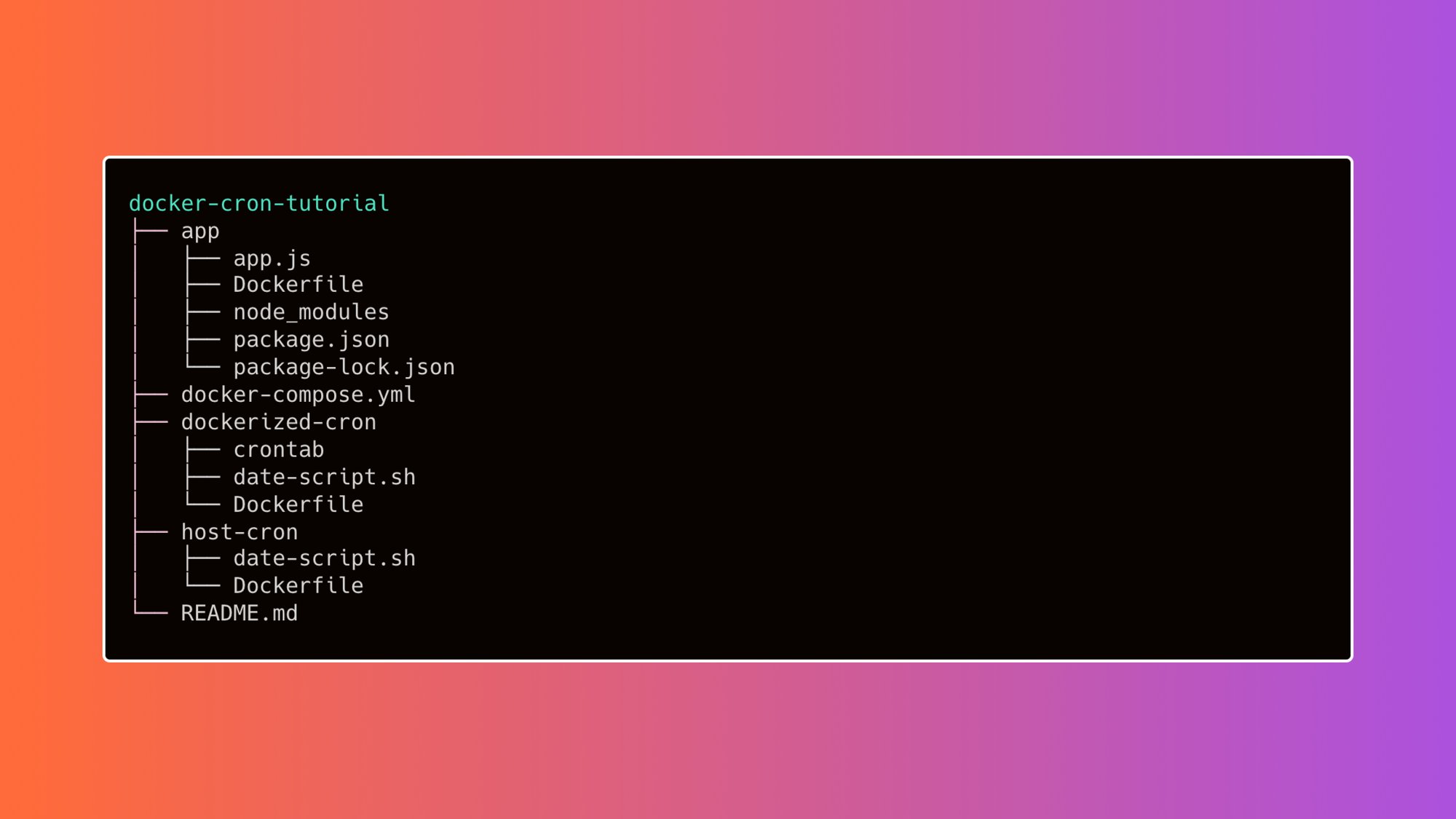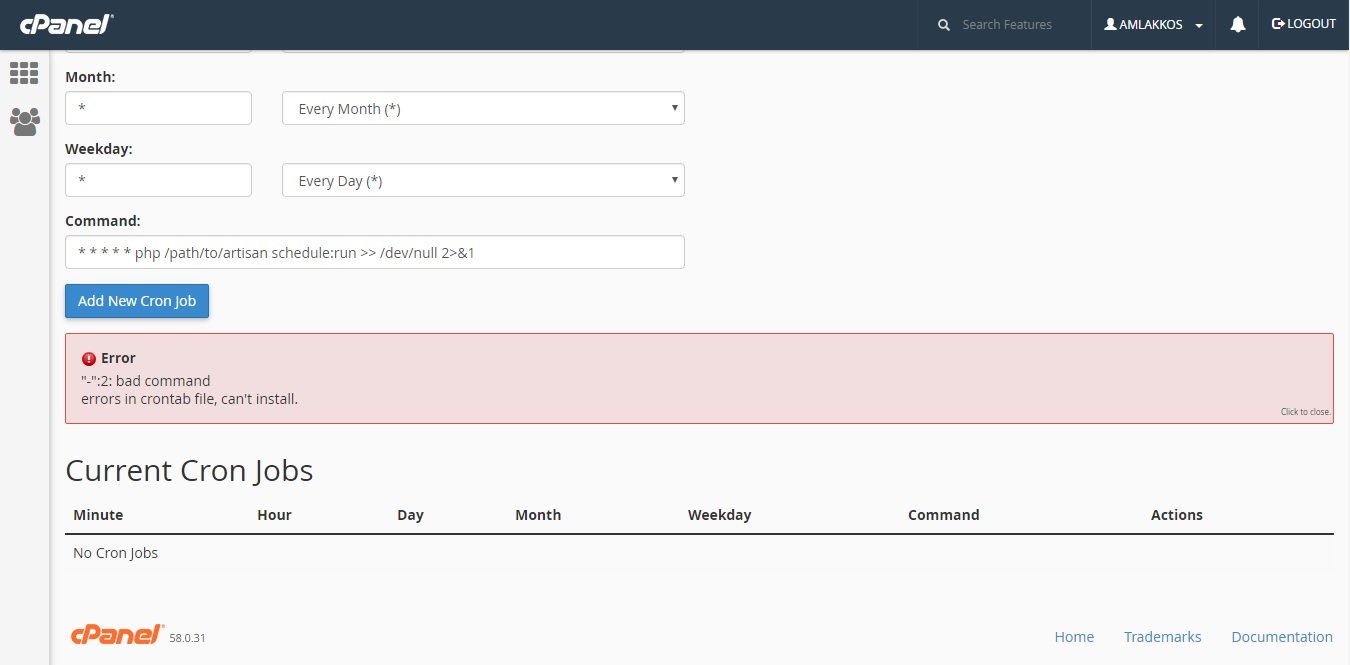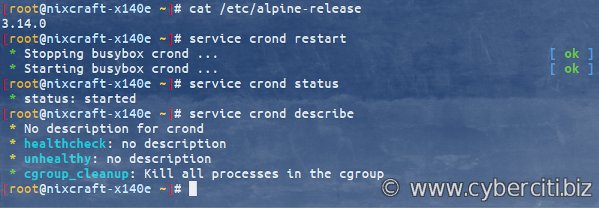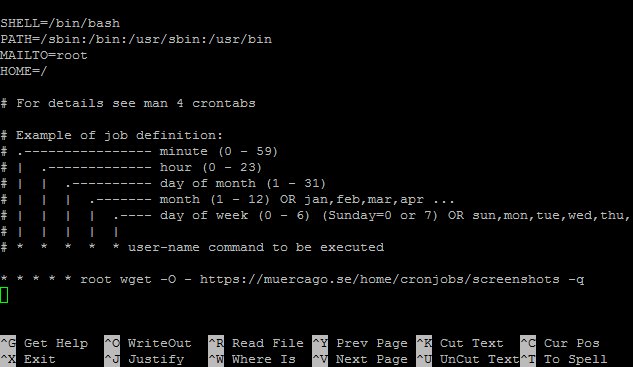Looking to automate tasks within your Docker containers? Enter Docker Cron Job. This powerful feature allows you to schedule and run commands at specific intervals, making it an essential tool for managing recurring tasks. Whether you need to perform routine maintenance, update data, or execute any other task automatically, Docker Cron Job has got you covered. In this article, we will delve into the intricacies of Docker Cron Job, exploring how it works and providing practical examples to help you incorporate this functionality seamlessly into your Docker workflow. So, let’s dive right in!
Docker Cron Job: Efficient Scheduling in Containerized Environments
Introduction
In the world of containerization, Docker has emerged as a popular platform for building, deploying, and managing applications. With its robust features and flexibility, Docker enables developers to package applications and their dependencies into containers, ensuring consistency across different environments. One essential aspect of application management is scheduling recurring tasks, which can be achieved using cron jobs. In this article, we will explore the concept of Docker cron jobs and how they can be utilized to automate and streamline routine tasks within containerized environments.
Understanding Cron Jobs
Before diving into Docker cron jobs, let’s first understand cron itself. Cron is a time-based job scheduling utility in Unix-like operating systems. It allows users to schedule commands or scripts to run automatically at fixed intervals or specific times. Each scheduled task is known as a cron job and is managed by the cron daemon, which runs in the background and executes the specified commands at the designated times.
Cron jobs are defined using a cron expression, which consists of five fields representing the different components of time – minutes, hours, day of the month, month, and day of the week. These fields can be configured with specific values or with wildcard characters to indicate any value. Cron expressions provide great flexibility for specifying the desired schedule for automated tasks.
Benefits of Using Docker for Cron Jobs
When it comes to managing cron jobs in a containerized environment, Docker provides several advantages over traditional setups. Here are some key benefits:
- Isolated Execution: Docker containers offer a high level of isolation, ensuring that cron jobs run independently without interfering with other processes or system resources. This isolation helps prevent conflicts and enhances the overall stability of the system.
- Portability: Docker containers are easily portable across different environments, making it simple to deploy cron jobs consistently across development, staging, and production environments.
- Version Control: Docker allows you to version control your containers, including the cron jobs within them. This makes it easy to track changes, roll back to previous versions if needed, and ensure that the same version of cron jobs is running across different environments.
- Scalability: With Docker, you can effortlessly scale your cron jobs by spinning up multiple instances of the container running the cron job. This enables efficient execution of tasks in parallel and ensures high availability.
Running Cron Jobs in Docker Containers
To run cron jobs in Docker containers, we need to create a custom Docker image that includes the necessary cron configuration and the scripts or commands to be executed. Here’s a step-by-step guide on how to set up and run cron jobs in Docker:
- Create a Dockerfile: Start by creating a Dockerfile that defines the base image, installs cron, and copies the script or command files into the image.
- Configure the Cron Tab: Inside the Dockerfile, you can use the `RUN` command to configure the cron schedule by adding entries to the cron tab file. The cron tab file is usually located at `/etc/crontab` in most Linux distributions.
- Entry Point Script: In the Dockerfile, specify an entry point script that runs when the container starts. This script is responsible for starting the cron daemon and any other initialization tasks required.
- Build the Docker Image: Use the `docker build` command to build the Docker image using the Dockerfile created in the previous steps.
- Run the Docker Container: Finally, use the `docker run` command to start the Docker container based on the newly created image. The cron daemon inside the container will automatically execute the scheduled tasks based on the cron tab configuration.
Example Dockerfile:
“`Dockerfile
FROM ubuntu:latest
RUN apt-get update && apt-get install -y cron
# Copy cron configuration file
COPY cronjob /etc/cron.d/cronjob
# Copy script or command files
COPY script.sh /usr/local/bin/script.sh
# Make the script executable
RUN chmod +x /usr/local/bin/script.sh
# Create the log file
RUN touch /var/log/cron.log
# Run the command on container startup
CMD cron && tail -f /var/log/cron.log
“`
In the above example, we install cron in the base Ubuntu image and configure the cron job schedule by copying a cron configuration file (`cronjob`) into the container. We also copy the script file (`script.sh`) that contains the actual command or script to be executed by the cron job. Finally, we create a log file for any output or errors generated by the cron job and ensure that the cron daemon and log monitoring are initiated when the container starts.
Best Practices for Docker Cron Jobs
To ensure efficient and reliable execution of cron jobs within Docker containers, it is important to follow some best practices. Consider the following recommendations:
- Keep Containers Focused: Each container should have a single responsibility, and cron jobs related to that responsibility should be included within that container. This helps maintain a clean separation of concerns and improves overall system manageability.
- Use Environment Variables: Utilize environment variables within the cron scripts or commands to make them more configurable and flexible. This allows you to modify the behavior of cron jobs without modifying the container image.
- Handle Dependencies: If your cron job depends on external services or resources, ensure that you handle any potential failures gracefully. This can include retries, fallback mechanisms, or appropriate error handling within the cron script.
- Keep Logs and Alerts: Implement proper logging and monitoring for your cron jobs. Make sure you capture any relevant output, errors, or execution logs, and set up alerts to notify you of any failures or abnormal behavior.
- Regularly Test and Update: Test your cron jobs regularly to ensure they are functioning as expected. Additionally, keep your container images and dependencies up to date to benefit from bug fixes, security patches, and performance improvements.
Docker cron jobs provide an efficient and convenient way to automate recurring tasks within containerized environments. By leveraging the power of Docker, developers can schedule and manage cron jobs in a portable, scalable, and isolated manner. This allows for streamlined operations, improved system stability, and enhanced productivity. Understanding the concepts and best practices of Docker cron jobs empowers developers to harness the full potential of containerization and build robust, automated systems.
We hope this article has shed light on the capabilities and benefits of Docker cron jobs. Whether you are deploying applications, running data backups, or performing routine maintenance, Docker cron jobs can simplify and automate these repetitive tasks, freeing up valuable time for innovation and development. Start exploring Docker cron jobs today and unlock the potential of efficient scheduling in your containerized environments.
Cronjob inside Docker Container 🔥🔥 | Cronjob in docker | Aditya Mandil
Frequently Asked Questions
What is a Docker cron job?
A Docker cron job is a scheduled task that runs inside a Docker container at specific intervals. It allows you to automate repetitive tasks, such as backups, data synchronization, or system maintenance, by defining a schedule using the cron syntax.
How can I create a Docker cron job?
To create a Docker cron job, you need to follow a few steps. First, you need to define the task you want to run inside a script or a command. Then, you can create a Docker image that includes this script and any dependencies. Finally, you can use a cron scheduler inside the Docker container to execute the task at the desired interval.
Can I use environment variables in a Docker cron job?
Yes, you can use environment variables in a Docker cron job. Docker allows you to pass environment variables to the container using the `-e` flag when running the container. These environment variables can be accessed by the cron job script or command, enabling you to customize the behavior of the task based on different environments.
How do I schedule a Docker cron job?
To schedule a Docker cron job, you need to specify the cron schedule in the crontab file inside the Docker container. The crontab file contains entries in the cron syntax that define the schedule for each task. You can edit the crontab file manually or use the `crontab` command to manage the schedule.
Can I pass arguments to a Docker cron job?
Yes, you can pass arguments to a Docker cron job. If your cron job script or command accepts arguments, you can pass them by appending them after the script or command in the cron syntax. For example, if your command is `my_script.sh arg1 arg2`, you can add it to the crontab file as `* * * * * my_script.sh arg1 arg2` to run it with the specified arguments.
Where can I find logs for my Docker cron jobs?
The logs for Docker cron jobs are usually stored within the Docker container. You can access them by running the Docker container and then using the appropriate log viewing command inside the container, depending on the Linux distribution used in the container. Common commands include `tail -f`, `cat`, or `less` followed by the log file path.
Final Thoughts
A Docker cron job is a powerful tool for automating repetitive tasks within a Docker container. By utilizing the cron scheduler, Docker users can easily schedule and execute scripts or commands at specific intervals. This enables the smooth running of periodic tasks such as backups, data synchronization, or data cleaning. Docker cron jobs are a convenient way to automate routine tasks without requiring manual intervention. Incorporating cron jobs into your Docker workflow enhances efficiency and improves productivity. By utilizing this feature, you can effectively manage and schedule tasks within your Docker environment. So, whether you need to schedule backups, synchronize data, or perform other routine activities, Docker cron jobs are an essential tool to have in your arsenal.




